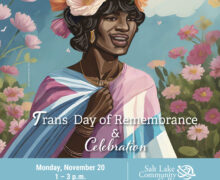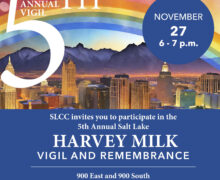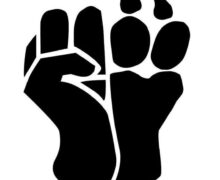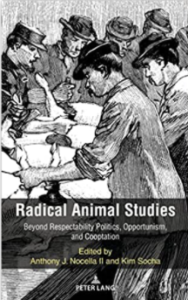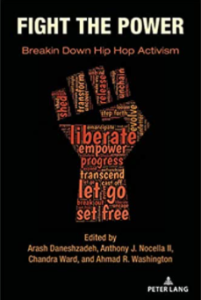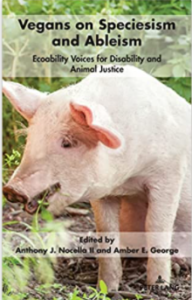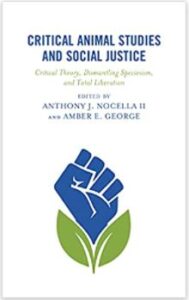2014 (Sept 2-6) Leipzig Degrowth Conference—Some Animalist Remarks
By Kris Forkasiewicz
A 2,500-strong conference with vegan catering sounded promising. And indeed, on many points, it did deliver. Diversity, color, animated surroundings—these were all there at the downtown location where the events to come took place. I’d been hoping that with degrowth’s turn to the local and the real, the blindfold precluding notice of horrendous conditions of life and death in animal exploitation would come to some prominence. But my optimism was premature.
Animalist issues were not only severely underrepresented. The animal theme was often an object of scorn and ridicule, attesting to a sorry status quo dominated by an exclusionary focus on human/nature affairs. This dialectic, itself dubious, has left no place for other animals to even be noticed beyond some rather insignificant gestures à la “let’s drop a sentence on ‘the animals’ so we can finally move on to more substantial matters.”
 Continued animal use seems to be part of an overwhelming majority of degrowth visions for the future. For instance, Growl, a pan-European project aimed at creating a network of degrowth trainers, and founded by François Schneider, is now offering what they call “donkey tours” or “caravans,” where the animals are once again instrumentalized as “beasts of burden.” Talk about the good old days!
Continued animal use seems to be part of an overwhelming majority of degrowth visions for the future. For instance, Growl, a pan-European project aimed at creating a network of degrowth trainers, and founded by François Schneider, is now offering what they call “donkey tours” or “caravans,” where the animals are once again instrumentalized as “beasts of burden.” Talk about the good old days!
Reactionary? You bet.
We didn’t fail to show up to one of the conference’s biggest sessions (“Décroissance, Postwachstum, decreixement, decrescita—all degrowth but different?”), a panel frequented by the movements leading intellectuals, such as Joan Martinez-Alier, Schneider, Niko Paech, and Mauro Bonaiuti. “No-animal zone,” we thought. For a while this prediction held. And then came the evening’s comedic moment, a breath of fresh air many dull panels like this could use. Except it was, as usual, the ridiculed figure of the animal that resonated with the now-booming audience of 500. The moderator, Dr. Elisabeth von Thadden, feeling star-like and full of herself, had hilariously—so she thought—confused Schneider‘s use of the donkey (in his walking trips) with “monkey,” whom, as far as I’m aware, he hasn’t yet used. So, monkey-donkey. See how the two rhyme? Loads of fun, right? And now, immediately, came the moderator’s own convulsions of laughter, keeping us waiting for an interval that seemed all but sinister, and keeping both donkeys and monkeys (sheesh!) safely subjugated in the heads of many an audience member.
All in all, the cows, chickens, or pigs condemned to industrial exploitation were either referred to as “meat” or, when the time came to criticize the suffering inflicted on them in these large-scale facilities, got framed (pun intended) in the usual discourse of “care without freedom”—clearly a position the most horrible industries now capitalize on. For degrowthers, it was not the misery but the scale that was relevant.
 The scope of speciesism at Degrowth 2014 was blatant. The originally planned session on Animal Liberation was in the end cancelled, to be replaced by a more vaguely titled session on the “Crisis of the Human and Nonhuman World.” But a bunch of us were there as animalists to the bone. Arianna Ferrari, Anne Fremaux, and I presented our papers to a warm reaction from the audience in one of the more remote lecture rooms, and Friederike Schmitz led a successful animal liberation workshop. All of this took place on a day devoted to “Building Alliances.” Ironically, for all their face-value inclusiveness, degrowthers turn out not to be easy to build an alliance with.
The scope of speciesism at Degrowth 2014 was blatant. The originally planned session on Animal Liberation was in the end cancelled, to be replaced by a more vaguely titled session on the “Crisis of the Human and Nonhuman World.” But a bunch of us were there as animalists to the bone. Arianna Ferrari, Anne Fremaux, and I presented our papers to a warm reaction from the audience in one of the more remote lecture rooms, and Friederike Schmitz led a successful animal liberation workshop. All of this took place on a day devoted to “Building Alliances.” Ironically, for all their face-value inclusiveness, degrowthers turn out not to be easy to build an alliance with.
On Friday we attended another big session where we were (un)fortunate enough to hear yet more panelists equivocate on issues of animal rearing and small-scale agriculture which, we showed, reproduces the dynamic of domination culminating in factory farming and represents a of defense for the “meat,” dairy, and egg industries’ rationale in a time when it is officially no longer OK to wantonly maim and kill. Eric Holt-Giménez, the executive director of Food First, would keep cows and sheep etc. bound to farms because of how they “enrich farm biodiversity” (???) and help “create corridors connecting farms to forests.” I’m sure I got this last point wrong. Then again what Eric said had nothing to do with the questions we asked or comments we made.
In turn, Christiana Schuler, a small-scale dairy farmer and former shepherd, said she “didn’t mind us not wanting to raise and kill the animals ourselves.” Once again, capitivity and killing become issues of mere opinion. Smells like speciesism: I cannot hear anybody at Leipzig making arguments for reinstatement of human slavery or feudal subjection. In the end, farmed animals own interests (don’t mention freedom from domination to environmentally psyched degrowth folks!) not only do not matter to degrowthers, they do not compute. The discussed session, “The Food Challenge. Struggling for Just and Ecological Food Systems,” had been badly mistitled.
For degrowth in general it is OK to make other animals part and parcel of human technical apparatuses. From there, it takes a single step to the humans/nature dialectic mentioned near the beginning of the article, where cows, chickens, and other sentient beings are conflated with “nature” and come to be seen as exploitable within certain sustainable boundaries. It is here that terms like “overhunting,” “overfishing,” or “overexploitation” are born. As if exploitation of sentient life as such was fine in the first place. To argue these finer points against degrowth’s negligence would take a separate text. But these are already out there, and more are coming.
We challenged the speakers on the many points raised and not raised, in the Q&A, whereafter we left the room feeling like our words were not really heard at all. It is amazing how unintelligent otherise incisive theorists and professional thinkers become once challenged on an inconvenient matter of what’s on their place. While we all know this, we at the conference had enough at this point.
On the same day, we improvised an extra-programmatic Animal Liberation Open Space, during which we co-authored a statement to the organizers expressive of our discontent:
Leipzig, September 5, 2014
Dear Degrowth,
As participants of the Leipzig Degrowth Conference 2014, we feel it is our responsibility to point out a serious blind spot in the discussion.
The concrete suffering and exploitation of animals has to be addressed—not only in industrialized but also in small-scale practices.
Opposing only factory farming without questioning power relations between sentient species is a gross omission.
The question of the good life, so central to degrowth, must not be limited to the human species alone.
The ethical and political aspects of neglected animal interests require space for articulation.
The undersigned…”
This followed by a bunch of last-minute signatures. Pretty mild, no? We were, mind you, way angrier than this.
Of course, the conference was more than what we managed to take in amidst the mass of events jam-packed into an otherwise wonderfully organized event. But what we did catch offered a lesson: We need to go on the offensive, to participate in and skillfully disrupt the egregious consipracy of silence and ridicule at events where are not welcome—either rejected outright or reluctantly tolerated—silence and ridicule that would have animal liberation relegated to a peripheral, easily dismissed, and frivolous interest.



